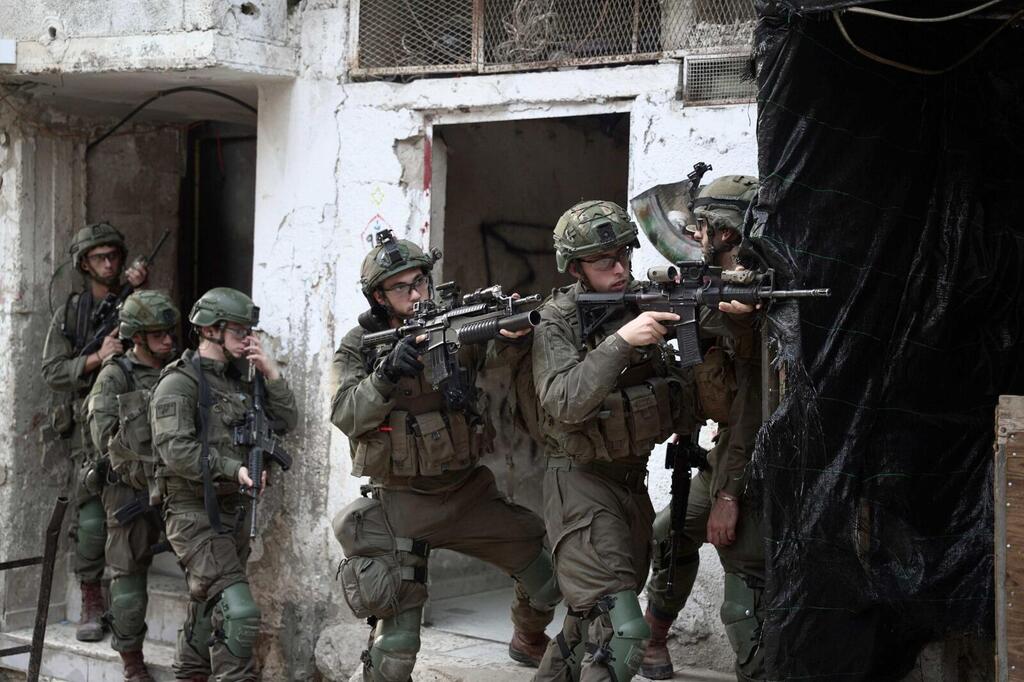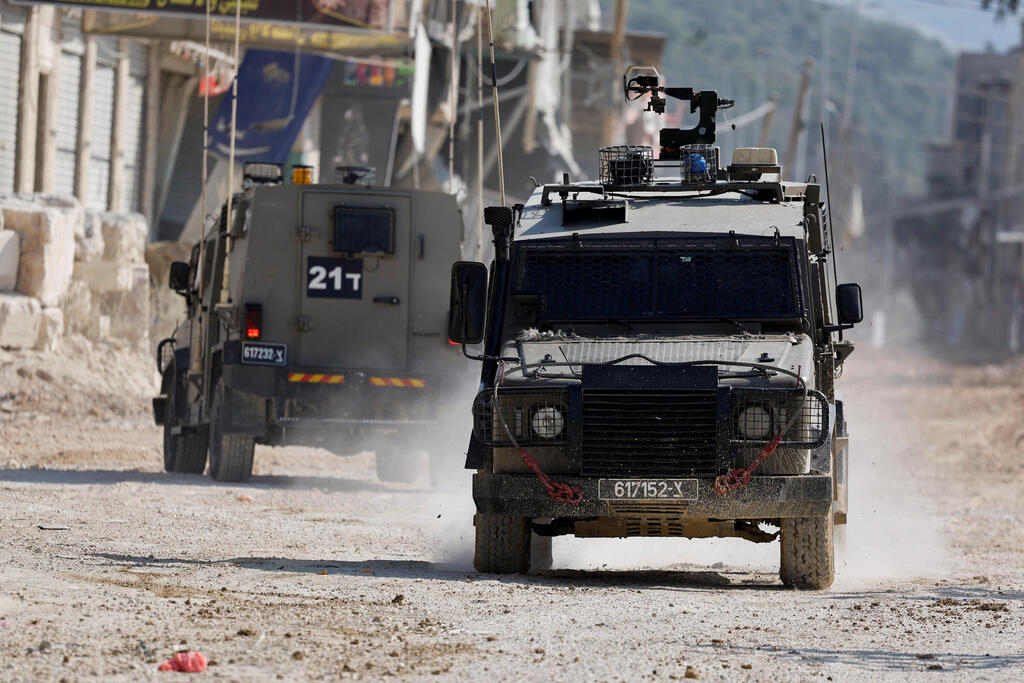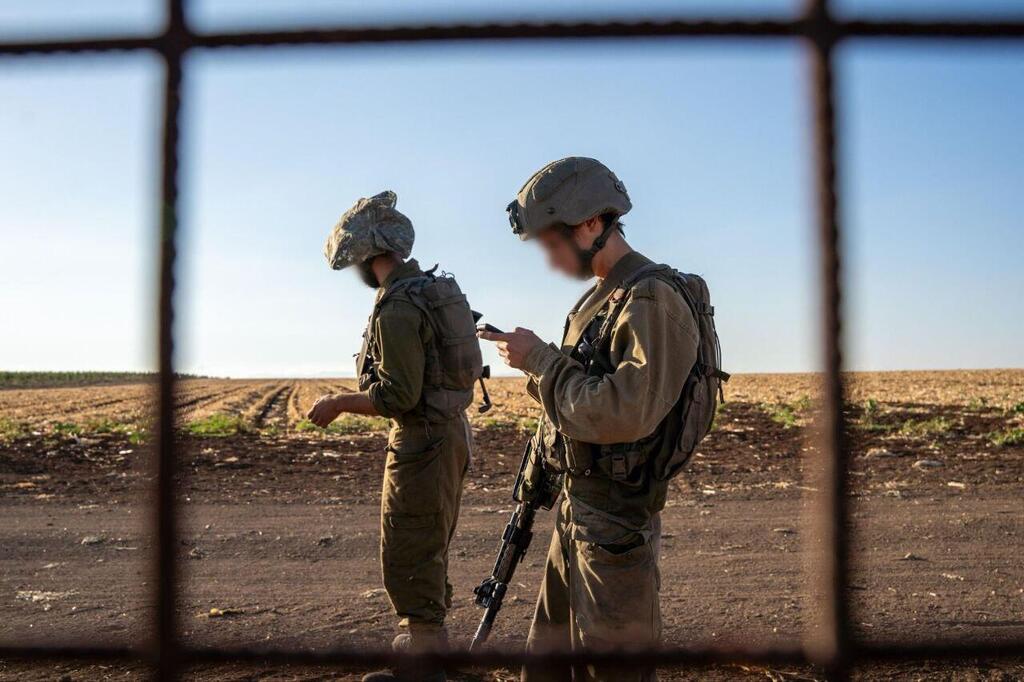Getting your Trinity Audio player ready...
As negotiations for calm continue along Israel’s northern border and hostilities remain active in Gaza and southern Lebanon, IDF operations in the West Bank show no signs of slowing, even after heightened activity during the recent High Holiday period. Although recent weeks have seen fewer prolonged operations deep in refugee camps, aggressive counter-terrorism efforts persist.
Overnight Thursday, IDF forces targeted and eliminated an armed terrorist cell in a preemptive airstrike on Tulkarm's Nur al-Shams refugee camp.
Casualties from IDF strikes on Tulkarm evacuated, earlier this month
Israeli security assessments highlight three key strategic areas contributing to regional security challenges:
Arm smuggling on the eastern border: For months, the IDF and Shin Bet have warned of extensive arms smuggling along the porous Jordanian border, with terrorist groups attempting to bring sophisticated arms, including anti-tank missiles and military-grade explosives, into the West Bank.
While the IDF recently announced plans to establish a specialized division focused on tightening security along this border, its operational start date remains uncertain.
Green Line crossings: Movement across the Green Line into Israel and back into the West Bank is a key security concern, with authorities working to strengthen defenses at checkpoints. Despite these efforts, officials report significant quantities of smuggled ammunition—such as a recent seizure of thousands of 5.56mm rounds intended for West Bank terrorists.
Regarding unauthorized workers, estimates indicate that about 70,000 Palestinian workers are present within Israel, around 40,000 of whom lack permits. Though the Security cabinet has avoided deciding on halting the entry of Palestinian workers during the ongoing war, far-right ministers Bezalel Smotrich and Itamar Ben-Gvir continue to oppose such discussions.
Cross-Border terror coordination: Security officials report that Hamas is actively recruiting West Bank operatives from Lebanon, Syria and Gaza to carry out attacks. Known as “external direction,” this coordination includes providing operatives with funding, often through intermediaries, such as electronics traders who receive funds from Hamas to purchase supplies, keep a portion and deliver the rest to West Bank contacts.
Meanwhile, IDF West Bank Division is now focusing on securing major roads and settlements, reinforced in the wake of the October 7 attacks. Additional arms, equipment and personnel, including reservists and rapid-response teams, have been deployed to strengthen settlement defenses.
In some areas, notably in Samaria in the northern West Bank, IDF bases have been relocated closer to communities. The objective is to double available firepower in case of sudden threats, giving forces time to hold positions until reinforcements arrive.
The West Bank Division highlights the strategic importance of operating within refugee camps, where preserving freedom of movement for counter-terror efforts is key. "The goal is to maintain and expand operational flexibility," an IDF source explained, noting that frequent entry into camps reinforces the military’s deterrence and helps prevent armed resistance during arrests or security operations.
"To keep this freedom of action, I’m in Nur al-Shams every week," he said, expressing concern over northern Samaria, where substantial funds and resources are fueling terrorism.
Despite political actions that have destabilized the Palestinian Authority, Israel’s security agencies coordinate counter-terrorism with Palestinian security forces. While IDF officials emphasize they are not solely reliant on Palestinian forces, cooperation in certain areas does take place.
The Palestinian Authority’s recent arrest of a terror cell in the Qalqilya area exemplifies this coordination. Security forces captured six suspects and a large cache of weapons intended for a major attack, including seven Carlo submachine guns, four M16 rifles and thousands of rounds of ammunition.
However, while Palestinian forces work with Israeli counterparts, they typically avoid refugee camps, where the IDF has intensified operations. An IDF official noted that despite a relatively calm holiday period in the West Bank, the situation remains volatile, with a call among officials for larger-scale operations to seize arms, set up checkpoints and conduct broader arrests.
Get the Ynetnews app on your smartphone:









